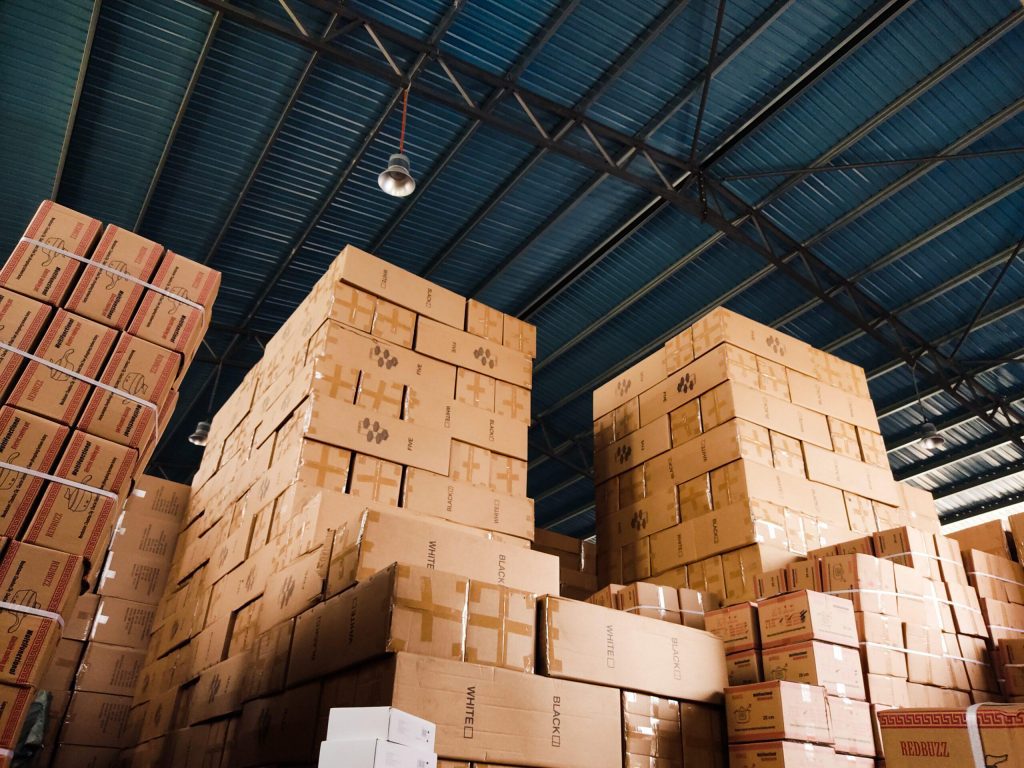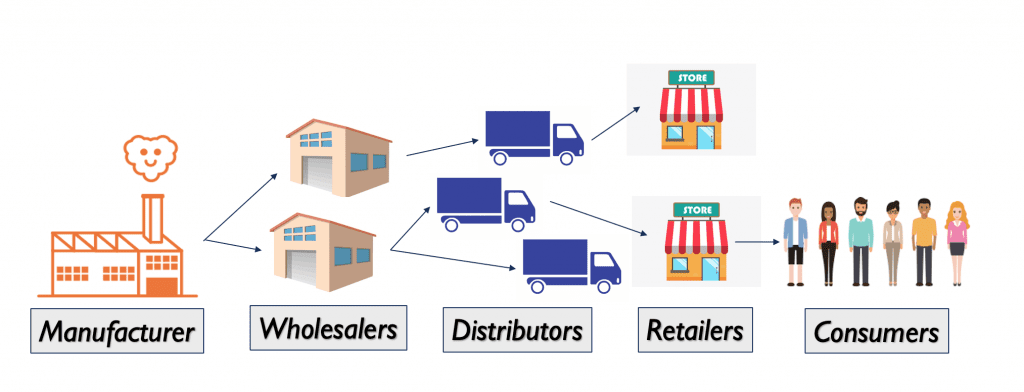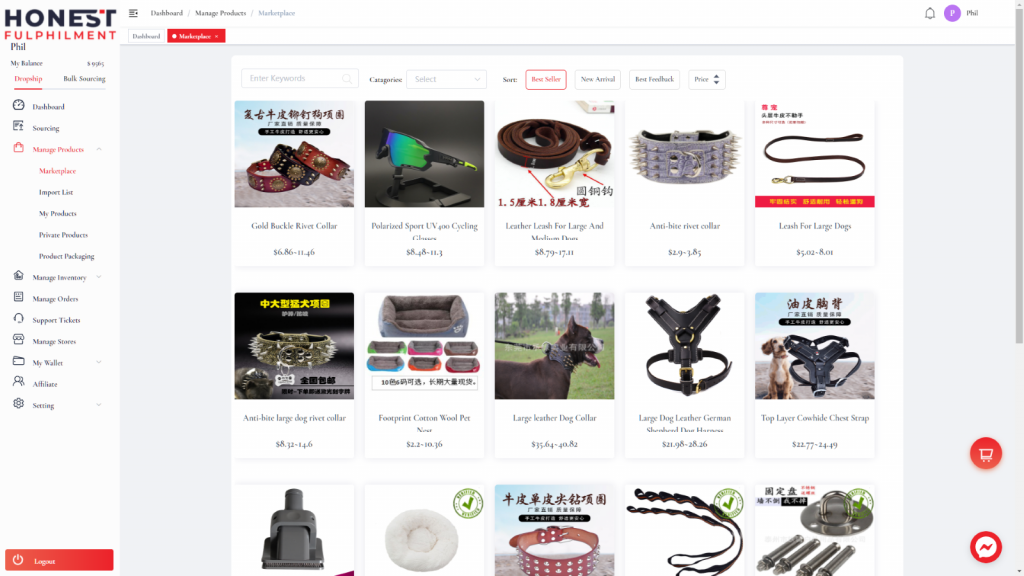Wholesaler VS Distributor VS Supplier: What Is The Difference?
- 27/10/2022
- Philip K
As part of the product distribution process, those building a retail business need to know about suppliers, distributors, and wholesalers. Each of these three parties helps businesses protect and distribute their products. However, their involvement in the product distribution process varies.
This article describes the content, different types, and advantages of all three. By reading this article you can understand how they fit into your supply chain. In addition, we will recommend high-quality suppliers to facilitate your choice, and if you have other questions, we can also help you solve them.

What is a Wholesaler?
Wholesalers are business organizations that directly contact manufacturers and sell products to retailers. Retailers only sell one or two products, while wholesalers buy a large number of products, generally, more than 2 to tens of thousands, all belong to wholesalers. Wholesalers are economic entities that purchase goods from upper-level suppliers (such as factories/agents/distributions) in bulk, and then sell them in bulk to next-level demanders (such as retailers).

Types of Wholesalers
It operates a wide range and variety of commodities, and its wholesale targets are mainly small and medium-sized retail stores. In the industrial user market, directly face product users.
Specializing in a certain category of commodities, the business of such commodities is complete in color, variety, brand, and specification. Commodities are usually divided by industry, such as clothing wholesalers, liquor wholesale companies, companies specializing in auto parts, instrument wholesale companies, etc.
The high degree of specialization, specializing in a certain brand in a certain category of goods. Although the scope of business commodities is narrow and single, the scope of business activities and market coverage are very large, generally national. Such as clothing wholesalers, commodity grain wholesalers, petroleum wholesalers, timber wholesalers, paper wholesalers, metal material wholesalers, chemical raw material wholesalers, mineral wholesalers, and so on.
The wholesale trading market is a business format between the retail industry and the wholesale industry, and the trading behavior is not very standardized. Bulk trading of goods at wholesale prices. Its types include the wholesale market at the origin, the wholesale market at the place of sale, and the wholesale market at the distribution center.

What is a Distributor?
A distributor is an intermediary who acquires title to goods in a trade. They take ownership of goods by purchasing and reselling them, so they take all kinds of risks. The distributor decides the price, and is only interested in profit and not faithful to which manufacturer and exporter. Common distribution methods are distribution, wholesale, and retail.
Types of Distributors
With the change in consumer groups, the market demand is increasing. In order to meet the needs of the market, more and more distribution systems have appeared. As market competition intensifies, more and more friends have become distributors. And many friends use this marketing method to help themselves achieve online marketing and enhance the influence of their own brands. How many types of distributors are there?
The vertical channel system is composed of vertically integrated producers, wholesalers, and retailers, whose members belong to the same company, are granted members for exclusive franchises, or are enterprises with sufficient control capabilities. Each member sees himself as a part of the distribution system and focuses on the success of the entire vertical system. In consumer goods sales, vertical marketing systems have become the dominant form of distribution, accounting for 64% of the total market.
A horizontal channel system, also known as a symbiotic marketing channel relationship, refers to a distribution channel system in which two or more companies are horizontally united to jointly develop new marketing opportunities.
Features: Two or more companies are horizontally combined to form a new organization, giving play to their respective advantages and realizing the effective and fast operation of the distribution system, which is actually a horizontal joint operation. The purpose is to synergize resources or avoid risks through joint efforts.
The multi-channel system refers to a distribution system that uses multiple channels for the same or different market segments. (It means that a company establishes more than two channels for distribution activities. Each channel of the company can achieve a certain amount of sales.)
Differences between Wholesaler and Distributor
Wholesalers are different, and regardless of whether they are sold or not, the purchase and sales of goods will not be affected.
What is a Supplier?
Suppliers include not only enterprises but also individuals, who can provide enterprises with the raw materials, energy, equipment, and labor they need. How will their activities affect the enterprise’s activities?
As raw material price changes, shortages, etc. will affect the price and delivery time of the company’s products, and thus weaken the long-term cooperation and interests between the company and customers. Therefore, for marketers, it is necessary to have a more comprehensive understanding and thorough analysis of the supplier’s situation.
Tips to Find the Best Dropshipping Suppliers for your Business
Understanding what a good supplier looks like is crucial. There’s also little point in due diligence and taking a fragmented approach to suppliers coming in if you don’t know what you’re looking for. So, here are some things to consider for your supplier:
A call for bids is issued according to the selection process you choose, i.e. an invitation to your preferred supplier, including full details of the product or service you require. And the quantity, delivery date, and quality standards are determined according to your standards.
Many people are powerful. When looking for a new supplier, you can consult your relatives and friends around you. After all, you can see all the strengths, which gives you more protection for your choice.
Even the most reliable suppliers occasionally make mistakes. Make sure they have a direct point of contact in your company for regular performance reviews. This will help you keep an eye on their work and make sure they honor the end of the agreement.
These tips can help us to select high-quality suppliers, who can deliver goods with quality and quantity within our budget. Honest FulPhilment will help you increase your productivity and ensure you obtain quality goods or services.

Conclusion
It is not easy for a seller to choose a high-quality supplier in a short period of time. At this time, we can rely on the professional team Honest FulPhilment. Honest FulPhilment has a professional team that can help you choose from a large number of suppliers, and can compare high-quality suppliers according to your requirements so that you can make a timely and fast selection, so as to facilitate the smooth development of your business. If you have questions about supplier convenience, please contact us.
Wholesaler VS Distributor VS Supplier FAQ
Need a Quick Quote?
– Competitive price
– Quote within 24 hours
– 30+ Shipping methods
– Dedicated account manager
– Shopify/Woo integrations
– Autofulfil
– Auto tracking
– Plus much, much more

5 Best Wholesale Home Decor Suppliers 2023



10 Best Bikini Brands For Summer 2023








